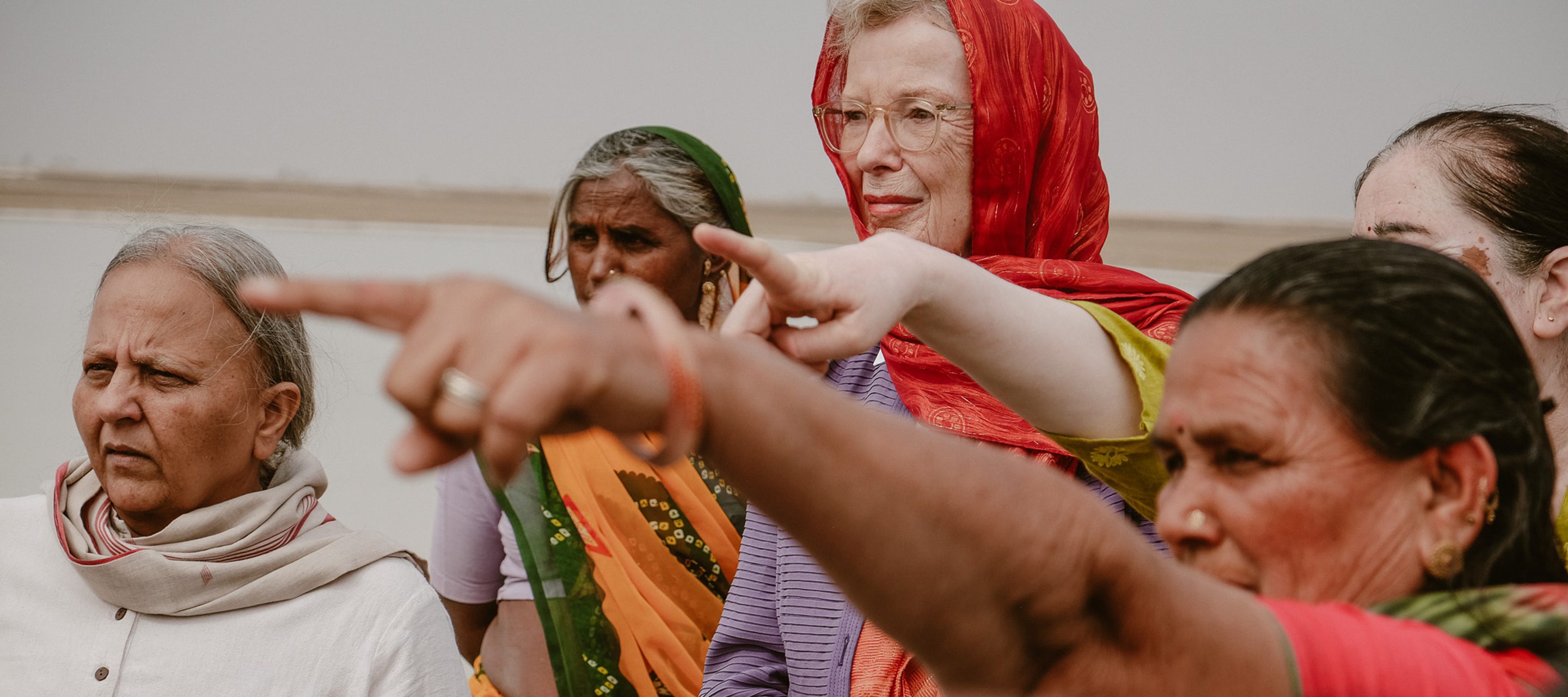Hope is grounded. It is persistent. It is the dirt beneath our nails and the strain in our backs.
27 June 2025 | 3 mins

I once heard my dear friend Archbishop Desmond Tutu say, “I am not an optimist, I am a prisoner of hope.” That phrase has stayed with me.
Because hope — genuine hope — is not the gentle, passive feeling it is so often mistaken for. It is not sentimentality. In my experience, hope is something far more resilient.
Hope is grounded. It is persistent. It is the dirt beneath our nails and the strain in our backs. It is found in the early morning meetings, the difficult conversations, the quiet endurance. Hope is imperfect, but it is powerful. It is essential.
Hope is Constance Okollet in Uganda, gathering women to rebuild their lives after devastating floods, beginning again with nothing but each other.
Hope is a young girl in Sweden, striking alone on the steps of her parliament, long before the world turned its cameras. It is the same girl, now a woman, getting on a flotilla and making that connection between the climate crisis and human rights.
Hope is the scientist who sees the enormity of what is at stake — and still continues, still believes, because the window for action, however narrow, remains open.
Hope is tenacious. It does not let go.
Hope is the women I met recently in Ahmedabad, India — women who, for generations, have laboured in the salt pans of Gujarat, facing poverty, exclusion, and marginalisation.
These women are not waiting for a just transition. They are creating one.
We often say we are only beginning to understand what a just transition entails. Yet when I meet communities around the world, I see that just transitions are already underway — not as abstract theories, but as daily realities.
Today, I want to share one such story. It is the story of Manguben and the women of SEWA — the Self-Employed Women’s Association in India. These women are transforming the way salt is harvested by harnessing solar energy.
In doing so, they are not only decarbonising one of the world’s most common ingredients — they are reclaiming power: economic, social, and political.
Stories such as these matter. They touch hearts and change minds. They remind us of the deeper purpose behind our efforts: the opportunity to create a more just, more equal, and more compassionate world.
And that brings me to why we are here today.
It is no longer sufficient to continue as we have. The challenges we face are too urgent. This moment calls for us to think and act differently. To shift the rhythm. To move beyond old models and embrace new symbols — like the dandelion I wear today.
Project Dandelion is about radical collaboration. It is about showing up — fully — with our stories, our sorrow, and yes, our hope. It is about weaving these elements into something brave, something transformative.
This is not a time for division. It is a time for unity. A time to listen deeply and to act with conviction — especially in service of those whose voices are too often unheard.
If we wish to shape a future that truly includes everyone, then we must build it with everyone. That means valuing community knowledge, respecting lived experience, and allowing solutions to emerge from the ground up.
The women of SEWA are not outliers. They are leaders.
All around the world, there are women, Indigenous guardians, youth, and informal workers who are not waiting for permission. They are acting. They are shaping. They are planting seeds for a future we all need.
Their efforts may not dominate headlines, but they are building the scaffolding of a just world.
In Ireland, we have a word: meitheal. It describes the tradition of neighbours coming together to help each other — especially during the harvest. Everyone contributes what they can, and together, the work gets done.
That spirit — of solidarity, of shared purpose — is what the world needs now. This is not about charity. It is about justice. Not about aid, but about agency.
So yes — come together. Share your stories. It matters. But then, take the next step.
Forge alliances that are fast-moving and fierce. Speak the truths that are not easy to hear. Invest in what matters most. Step out of this room with the resolve to stand with change-makers, not just applaud them.
The women of SEWA are already alongside us in this work. Let us not honour them with applause alone. Let us honour them with radical collaboration, radical communication and radical action.
Thank you.
Speech delivered during London Climate Action Week Event on Friday 27 June 2025
SEWA (Self-Employed Women’s Association) are workers who have trained as solar technicians, learning the skills needed to replace polluting diesel-powered pumps used to farm salt with solar-powered equivalents.
IHRB's JUST Stories' second project dives into the story of informal workers in India who are working together with business, unions, and investors to transition away from fossil fuels - creating a greener, fairer future.




